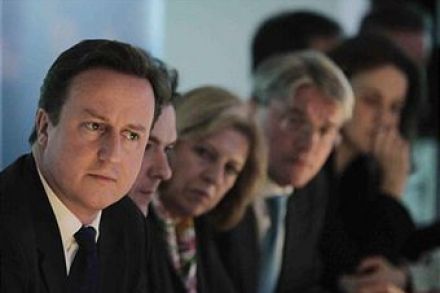The Tories need to talk about immigration
As the Tories prepare to head to the seaside, Tim Montgomerie has published a ten point plan to get the Tory campaign back on track. The plan is already causing much discussion in Tory circles. His main points are that the Tories need to sharpen their economic message, use William Hague more, sort out the structure of the campaign, warn of the dangers of a hung parliament and ram home to voters just how badly Labour has failed. What is getting the most attention, though, is Tim’s suggestion that the Tories should talk about immigration. I tend to agree with Tim on this point. It was a strategic mistake



















